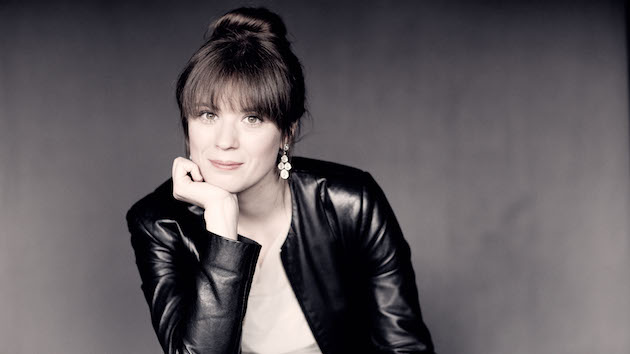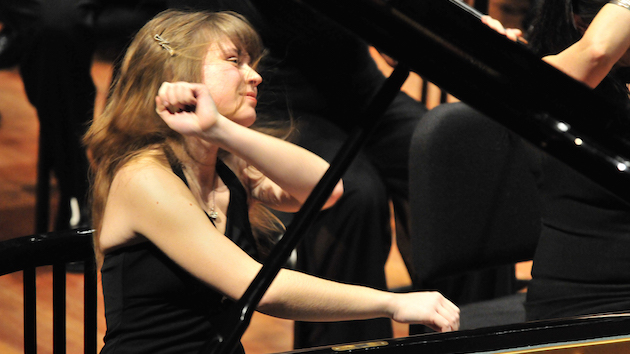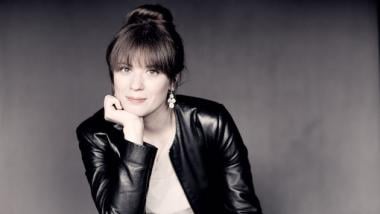
When composers incorporate negative emotions such as anger, betrayal, and pain into their work, performers must reach into an audience’s collective heart, caressing it and then, perhaps, crushing it mercilessly. The cycle of tenderness and betrayal can be a form of a codependent relationship.
A counterpoint was presented in a recital by the Ukrainian pianist Anna Fedorova. A former prodigy who made a debut at the venerable Concertgebouw in Amsterdam at age 16, Fedorova has been on concert tours nearly half of her life. However, her youth and perhaps innocence was evident not only in her performance at the Steinway Society of the South Bay, but in a brief, laughter-filled speech after the intermission, where she explained the connections she possesses with the fantasy-themed program.
From the first measure of Beethoven’s Sonata, Op. 27, No. 2, “Sonata quasi Fantasia,” better known as “Moonlight,” Fedorova laid out the elements of the music clearly. The chord progressions and distinct voices were clear, and even as elements were added and the key modulated, an uncanny sense of calm and familiarity filled the room. The second movement was taken at a relaxed tempo, but the fiery third movement was attacked with precision and — though perhaps a little reserved — nervous energy.

Chopin’s Fantasy, Op. 49 continued the theme. Fedorova’s keen sense of harmony translated into pristine pedaling that kept the colors untarnished. The works strives to reach new heights, particularly in the lyrical A-flat major sections, but Fedorova kept a tight rein to let the anguish-filled sections bloom freely. Overall, the atmosphere remained safely secure, without unexpected or unanticipated trauma to shake the audience’s heart. The prayer was serene, but some melodic lines were indistinct and failed to soar.
Fedorova continued with a melancholic and sentimental reading of Alexander Scriabin’s Sonata-Fantasy, Op.19. It is Scriabin’s early work, heavily influenced by Chopin, yet the textures and contrasts are denser and the harmony decidedly more complex. An unfortunate memory slip in the second movement may have taken away the nervous melodic line, but the sweet sentiment of the first movement, which Fedorova explained was inspired by the moonlit view of the Crimean sea on the composer’s honeymoon, was intact. In the volatile second movement, there were moments when the melodic lines were obscured, perhaps like a small boat on the stormy sea.
Fedorova began the second half of the program with an exquisitely balanced reading of Mozart’s Fantasia in D Minor. The improvisatory introduction flowed freely with layers of angst, followed by the weeping Adagio section that extended the character of the work. Here, Fedorova again showed her ability to convey the music’s emotions.
But Mozart’s Fantasia was almost a segue into Chopin’s formidable Sonata No. 3. Fedorova maintained her authority and composure in the stormy first movement. Even in the turbulent sections, the pace was solid and steady with confidence. Fedorova knows the work well and displayed her intimate relationship it. Every phrase was carefully sculpted, and each of the motifs were framed and presented with a clear intention. Even the flighty and capricious second movement was meticulously organized, while the sincere reading of the third movement brought out the warmth that would only exist in a relationship filled with trust. There was not a note out of place in the triumphant fourth movement, with a perfectly balanced sense of timing and space between phrases. Though another memory incident once again brought the music to a halt momentarily, Fedorova played with confidence and a strong sense of familiarity, as if she created an intimate circle where she read one epic story after another to an engrossed audience.




